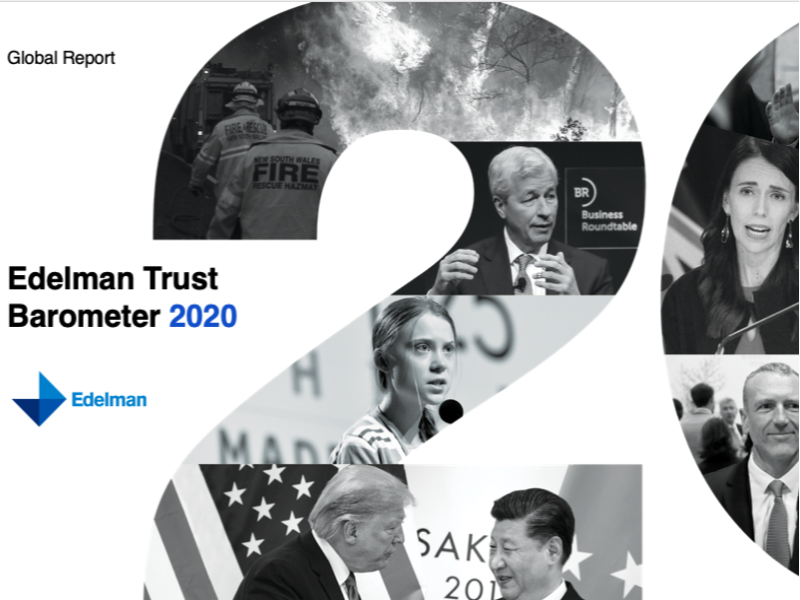Diana Marszalek 11 Jun 2020 // 11:30AM GMT

NEW YORK — A majority of Americans (63%) are concerned about racism — and nearly that many (60%) will buy or boycott brands based on how they respond to calls for racial equality over the next few weeks, according to a new Edelman Trust Barometer study.
That number, however, varied significantly among ethic groups who participated in the 2,000-person survey. 91% of the survey’s 235 Black respondents are concerned about systemic racism and racial injustice, versus 57% of 1,222 White participants. 69% of 246 Asian Americans 68% of 243 Latinx respondents said they are concerned.
60% of all respondents also said they believe brands should speak out on racism and racial injustice; 56% believe brands have a moral and societal obligation to take a stand on the issue.
“The results are unequivocal: Americans want brands to step up and play a central role in addressing systemic racism. This is a mandate for brands to act, because consumers will exercise brand democracy with their wallets. In the past, CEOs have spoken out on societal issues on behalf of corporate America; today, the CMO and CCO must join them as stewards of brand action,” CEO Richard Edelman wrote about the study.
Other key findings include: 60% of respondents believe brands must acknowledge the problem and invest in addressing the causes of racial inequality; 64% believe brands must set an example with their own organization; and four times as many respondents believe brands stand to gain trust versus lose it by taking stands than those who don’t.
“We have proven that brands can no longer dodge America’s original sin and third rail: systemic racism and inequality. Edelman is no exception: We know we need to do more to promote diversity and inclusion within our own ranks, and to work with others to build a just society, and we have committed to concrete actions to achieve those goals,” wrote Edelman, who last week promised to add diversity to senior leadership among other steps.
"The voice of the brand connects in a different way than corporations and CEOs; it inspires, motivates, and offers hope. It is powerful in making change because it stirs emotions and provokes response. The relationship of trust between brand and consumer now depends on tangible actions destined to change the course of history. Nelson Mandela was right in saying, ‘It always seems impossible until it’s done.’ Brands, this is indeed your time to lead.”
A DeVries Global survey of 1,000 Americans also found the Black Lives Matter movement impacting consumers’ relationships with brands. Key findings of that study include:
-
Younger consumers are 3.2 times more likely than others to suggest that the movement is going to change their purchasing behaviors in the future.
-
More than 62% of respondents under the age of 35 said they will be “doing more research on brands and their inclusivity practices before purchasing, in light of recent events.”
-
Among Black Lives Matter supporters, more than half (58%) want to see brands “encourage people to vote,” with other popular answers including “committing to look at their own company and diverse hires” (48%) and “making donations” (36%).
-
Black Lives Matter supporters are far more likely to say they’re going to handle the current situation by “talking about it with friends and family” (62%) over any other option we provided, including “making a donation” (36%).
-
TV is consumers' primary source of Black Lives Matter information, with 72% of respondents getting news from TV. 44% use social media for Black Lives Matter news, with the top social channels being Facebook, Instagram and Twitter in that order.



































.jpg)


















